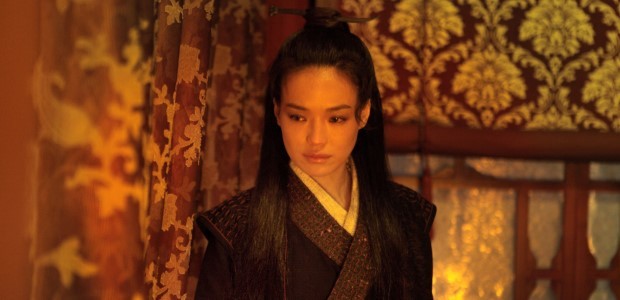A film director once told me that you have to be mad in some sense to manifest your vision on screen. Of course, he wasn’t talking about cerebral deterioration, rather, the ability to project an idea in a perceivable way. Touted as a martial arts epic, The Assassin is anything but. What it is, without exaggeration, is an unconventional film that appears to be made by a madman. The same can be said about whoever invented sushi. But if there’s a method to madness, acclaimed Taiwanese director Hou Hsiao-Hsein’s masterstroke is not about the story. Remarkably, it’s about how elements in the story come together, like when you’ve gazed at an abstract painting long enough.
In fact, the actual story is wafer thin and even done before. But before arriving at that conclusion, there’s a lot to endure in the form of ambiguity, excruciating pace, and moments where absolutely nothing is happening. Set in the Tang Dynasty of Imperial China, The Assassin tells the story of, well…an assassin who is highly skilled at ruthlessly eliminating corrupt government bigwigs. Even so, Yinniang (Shu Qui) isn’t as ruthless as she is thought to be, especially when it comes to children in the same room as her target. As punishment for not finishing the job, her mistress Jiaxin raises the bar in an ultimate test of courage – kill Lord Tian, governor of the largest army in Northern China. Problem is, Lord Tian is Yinniang’s cousin and whom she was once supposed to marry.
It’s that simple of a story, yet it takes the entire length and breadth of this film to gather an iota of exactly what is happening and when. It’s confusing at first because Yinniang and Tian’s background story is never revealed conventionally, or even through the tried and tested method of using flashbacks. Instead, Hsiao-Hsein prefers the story to unfold from characters themselves. This happens in sporadic dialogues between characters, punctuated with static frames of the wilderness, or of mist flowing over a lake, or of goats grazing under passing clouds. Thankfully, these are breathtaking shots that give the film a lot of atmosphere, even if the actors feel theatrical. Soon enough, you realize that the narrative ‘device’ is nothing more than the camera. Yinniang is expressionless throughout, as I imagine assassins would be, but the way she glides in and out of shadows, with the rhythmic ringing of an unseen gong is almost hypnotic.
Unlike previous martial arts films like the really epic Crouching Tiger, Hidden Dragon, the casual audience is likely to be disappointed if action is the sole expectation. For that matter, there are only about five fight sequences and all about five seconds each. Well, to be honest, almost a minute each, but that’s it. That’s because The Assassin isn’t really about martial arts, and neither is it an assembly line production like everything else made in China. It’s an impeccable story about the titular character, but without a sliver of that Hollywood glint we so often expect. And somewhere in there, or perhaps in its entirety, is the work of a genius. It might require multiple viewings and years of study but the fact remains that there’s a thin line between insanity and brilliance. Much the same as some appreciating a Picasso painting, while some don’t.
Rating: 




